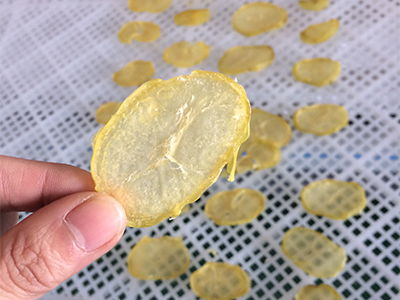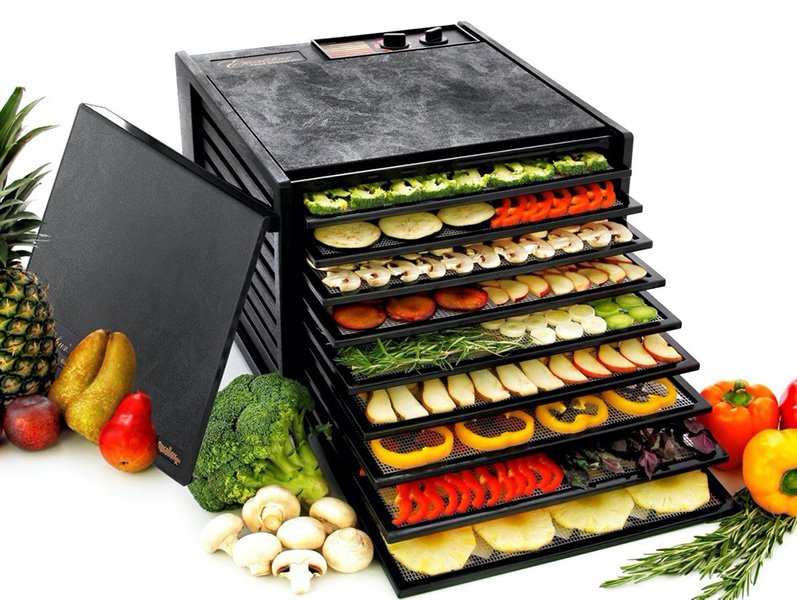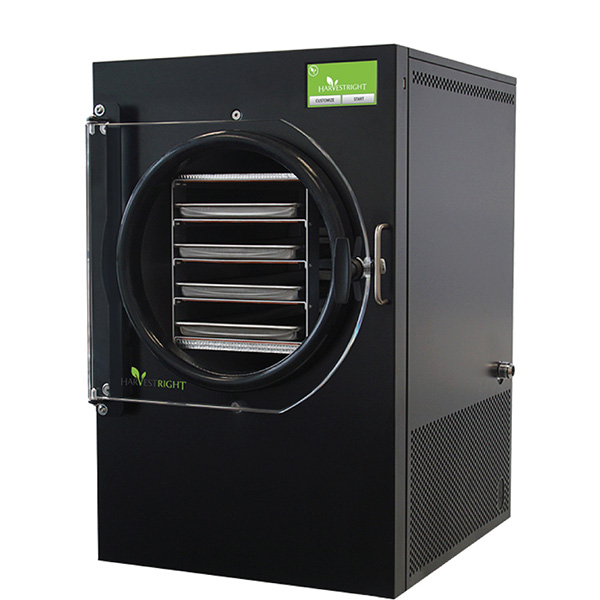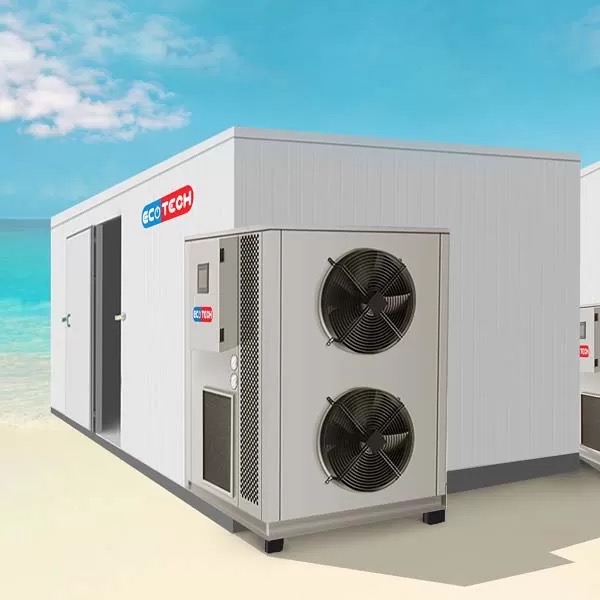
Content Menu
● Introduction
● Understanding Commercial Food Drying Machines
>> Key Features of Commercial Food Drying Machines
● Applications of Commercial Food Drying Machines
>> 1. Fruit and Vegetable Processing
>> 2. Meat and Jerky Production
>> 3. Herb and Spice Drying
>> 4. Pet Food Manufacturing
>> 5. Pharmaceutical and Nutraceutical Industries
● Benefits of Using Commercial Food Drying Machines
● Choosing the Right Commercial Food Drying Machine
● The Future of Commercial Food Drying Technology
● Conclusion
● Frequently Asked Questions
>> 1. Q: What is the average drying time for fruits and vegetables in a commercial food drying machine?
>> 2. Q: How does a commercial food drying machine differ from a home dehydrator?
>> 3. Q: Can commercial food drying machines be used for organic products?
>> 4. Q: What maintenance is required for a commercial food drying machine?
>> 5. Q: Are there any foods that should not be processed in a commercial food drying machine?
Introduction
In the ever-evolving world of food processing and preservation, commercial food drying machines have emerged as indispensable tools for businesses of all sizes. These industrial-grade food dehydrators are revolutionizing the way we preserve fruits, vegetables, meats, and other food products. In this comprehensive guide, we'll explore the ins and outs of commercial food drying machines, their benefits, applications, and how they're shaping the future of food preservation.
Understanding Commercial Food Drying Machines
Commercial food drying machines, also known as industrial food dehydrators, are sophisticated pieces of equipment designed to remove moisture from food products efficiently and consistently. These large-scale food dehydration systems utilize advanced technology to preserve food while maintaining its nutritional value, flavor, and texture.
Key Features of Commercial Food Drying Machines
1. Multi-layer design: Most commercial food drying machines feature multiple trays or layers, allowing for high-capacity food dehydration in a single cycle.
2. Temperature control: Precise temperature regulation ensures optimal drying conditions for different types of food products.
3. Airflow technology: Advanced airflow systems promote even drying across all layers of the machine.
4. Digital controls: User-friendly interfaces allow for easy operation and monitoring of the drying process.
5. Energy efficiency: Modern commercial food dehydrators are designed to maximize energy efficiency, reducing operational costs.

Applications of Commercial Food Drying Machines
The versatility of commercial food drying machines makes them invaluable across various industries. Here are some common applications:
1. Fruit and Vegetable Processing
Commercial fruit drying equipment is extensively used in the production of dried fruits and vegetables. From apple chips to sun-dried tomatoes, these machines can handle a wide variety of produce, preserving their nutritional value and extending shelf life.
2. Meat and Jerky Production
Large-scale food dehydration equipment is crucial in the production of jerky and other dried meat products. These machines ensure safe and consistent drying, crucial for producing high-quality, shelf-stable meat snacks.
3. Herb and Spice Drying
Commercial food dehydration systems are perfect for drying herbs and spices, preserving their essential oils and flavors for use in culinary applications or herbal products.
4. Pet Food Manufacturing
Many pet food manufacturers use industrial-grade food drying technology to produce dried pet treats and food, ensuring long shelf life and preserved nutritional value.
5. Pharmaceutical and Nutraceutical Industries
In these industries, professional food dehydration solutions are used to dry medicinal herbs, create powdered supplements, and preserve active ingredients in various health products.
Benefits of Using Commercial Food Drying Machines
Investing in a high-capacity food dehydrator offers numerous advantages for businesses in the food industry:
1. Extended shelf life: By removing moisture, these machines significantly extend the shelf life of food products, reducing waste and increasing profitability.
2. Preservation of nutrients: Unlike some other preservation methods, food drying maintains most of the nutritional value of the original product.
3. Cost-effective: While the initial investment may be significant, commercial food drying machines offer long-term cost savings through reduced spoilage and energy-efficient operation.
4. Versatility: These machines can handle a wide range of food products, allowing businesses to diversify their offerings.
5. Consistent quality: Industrial food dehydrators ensure consistent results, crucial for maintaining product quality and customer satisfaction.
6. Space-saving: Dried foods take up less storage space compared to their fresh counterparts, allowing for more efficient inventory management.

Choosing the Right Commercial Food Drying Machine
Selecting the appropriate commercial food drying equipment depends on several factors:
1. Production capacity: Consider the volume of food you need to process daily or weekly.
2. Types of food: Different foods may require specific drying conditions, so choose a machine that can accommodate your product range.
3. Energy efficiency: Look for models with energy-saving features to reduce operational costs.
4. Ease of use and maintenance: User-friendly controls and easy-to-clean designs can save time and labor costs.
5. Customization options: Some manufacturers offer customizable solutions to meet specific industry needs.
The Future of Commercial Food Drying Technology
As technology advances, we can expect to see even more innovative features in commercial food drying machines:
1. IoT integration: Smart, connected dehydrators that can be monitored and controlled remotely.
2. AI-powered optimization: Machines that can automatically adjust drying parameters based on the specific characteristics of each batch of food.
3. Sustainable designs: More eco-friendly models that use renewable energy sources or incorporate heat recovery systems.
4. Hybrid technologies: Combination of drying methods (e.g., freeze-drying and air-drying) in a single machine for more versatile food preservatio
Conclusion
Commercial food drying machines have become an integral part of the food processing industry, offering efficient and effective ways to preserve a wide variety of food products. As technology continues to advance, these machines will play an even more crucial role in ensuring food security, reducing waste, and meeting the growing demand for high-quality dried foods. Whether you're a small-scale producer or a large food manufacturing company, investing in the right commercial food drying equipment can significantly enhance your production capabilities and product quality.

Frequently Asked Questions
1. Q: What is the average drying time for fruits and vegetables in a commercial food drying machine?
A: The drying time can vary depending on the type of produce and the desired final moisture content. On average, it can take anywhere from 6 to 16 hours for fruits and vegetables. However, some high-efficiency machines can reduce this time significantly.
2. Q: How does a commercial food drying machine differ from a home dehydrator?
A: Commercial food drying machines are larger, more powerful, and designed for continuous operation. They offer greater capacity, more precise temperature and humidity control, and are built to meet food safety regulations for commercial use.
3. Q: Can commercial food drying machines be used for organic products?
A: Yes, many commercial food drying machines are suitable for organic products. It's important to ensure that the machine is properly cleaned and sanitized between batches to maintain organic certification.
4. Q: What maintenance is required for a commercial food drying machine?
A: Regular maintenance typically includes cleaning after each use, checking and replacing air filters, inspecting heating elements, and calibrating temperature sensors. It's also important to follow the manufacturer's guidelines for more comprehensive periodic maintenance.
5. Q: Are there any foods that should not be processed in a commercial food drying machine?
A: While most foods can be dried, some are not suitable or require special preparation. Foods with very high fat content, like avocados, may not dry well. Additionally, some dairy products and eggs should be avoided due to food safety concerns unless using specialized equipment designed for these products.












